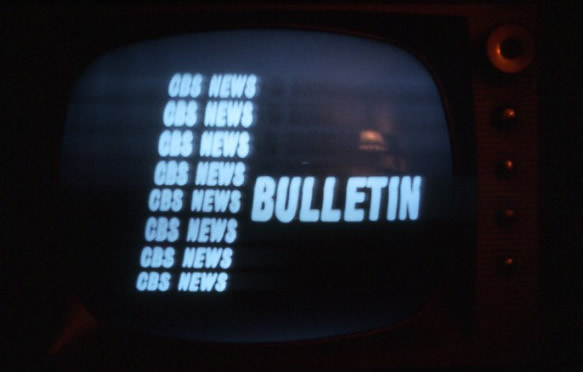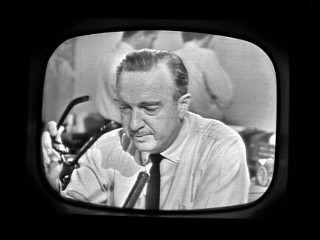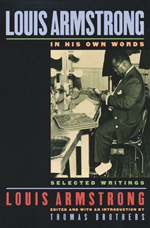Dennis Brain and Denis Matthews perform Beethoven’s Horn Sonata:
(This is the latest in a weekly series of arts-related videos that appear in this space each Wednesday.)
Archives for August 2009
TT: Almanac
“Am I happy? Probably not. Having passed the prescribed biblical age limit, I have to think of death, and I do not like the thought. There is a vestigial fear of hell, and even of purgatory, and no amount of rereading rationalist authors can expunge it. If there is only darkness after death, then that darkness is the ultimate reality and that love of life that I intermittently possess is no preparation for it. In face of the approaching blackness, which Winston Churchill facetiously termed black velvet, concerning oneself with a world that is soon to fade out like a television image in a power cut seems mere frivolity. But rage against the dying of the light is only human, especially when there are still things to be done, and my rage sometimes sounds to myself like madness. It is not only a question of works never to be written; it is a matter of things unlearned. I have started to learn Japanese, but it is too late; I have started to read Hebrew, but my eyes will not take in the jots and tittles. How can one fade out in peace, carrying vast ignorance into a state of total ignorance?”
Anthony Burgess, You’ve Had Your Time, Being the Second Part of the Confessions of Anthony Burgess
TT: Entry from an unkept diary
 • YouTube isn’t quite as wonderful as it ought to be, but when it’s good, it’s really good. The other day, for instance, I discovered that it is now possible to view the first hour and a half of CBS’ live coverage of the assassination of President Kennedy–uncut.
• YouTube isn’t quite as wonderful as it ought to be, but when it’s good, it’s really good. The other day, for instance, I discovered that it is now possible to view the first hour and a half of CBS’ live coverage of the assassination of President Kennedy–uncut.
The first thing you see is the opening segment of As the World Turns, TV’s longest-running soap opera, complete with the original commercials. Then, without warning, the screen is filled with a CBS NEWS BULLETIN slide and you hear the once-familiar voice of Walter Cronkite breaking the bad news:
Here is a bulletin from CBS News. In Dallas, Texas, three shots were fired at President Kennedy’s motorcade in downtown Dallas. The first reports say that President Kennedy has been seriously wounded by this shooting. More details just arrived. These details about the same as previously: President Kennedy shot today just as his motorcade left downtown Dallas. Mrs. Kennedy jumped up and grabbed Mr. Kennedy, she called “Oh, no!”; the motorcade sped on. United Press says that the wounds for President Kennedy perhaps could be fatal. Repeating, a bulletin from CBS News, President Kennedy has been shot by a would-be assassin in Dallas, Texas. Stay tuned to CBS News for further details.
What you don’t see is Cronkite’s face. In 1963 the CBS newsroom in New York was not yet equipped with a “flash studio” that made it possible to air live pictures of whatever newsman was breaking into regular programming. Not for another twenty minutes did the network get its cameras warmed up and running.
 No less surprising is the fact that Cronkite was relying exclusively on wire-service copy, which he read more or less straight from the teletype. Dan Rather was on the scene in Dallas, but he wasn’t able to talk directly to Cronkite in New York, much less send him pictures. Throughout the next hour, Cronkite was forced to read and re-read wire-service reports and to hold up still photographs of the presidential motorcade, all of them transmitted by AP and UPI. Eventually we see live pictures from inside the Dallas Trade Mart, to which Kennedy had been en route. More than a half-hour after the first bulletin, Cronkite quotes Rather, who finally managed to get through to New York by telephone with an unconfirmed report that Kennedy was dead–but Rather is neither seen nor heard.
No less surprising is the fact that Cronkite was relying exclusively on wire-service copy, which he read more or less straight from the teletype. Dan Rather was on the scene in Dallas, but he wasn’t able to talk directly to Cronkite in New York, much less send him pictures. Throughout the next hour, Cronkite was forced to read and re-read wire-service reports and to hold up still photographs of the presidential motorcade, all of them transmitted by AP and UPI. Eventually we see live pictures from inside the Dallas Trade Mart, to which Kennedy had been en route. More than a half-hour after the first bulletin, Cronkite quotes Rather, who finally managed to get through to New York by telephone with an unconfirmed report that Kennedy was dead–but Rather is neither seen nor heard.
Fans of Mad Men don’t need to be told how much the world has changed since the Sixties, but I can’t think of a more telling example of how TV news has changed than this dusty ninety-minute time capsule.
TT: Almanac
“To be able to sit home and put words together in what one hopes are charming or otherwise striking sentences is, no matter how much tussle may be involved, lucky work, a privileged job. The only true grit connected with it ought to arrive when, thinking to complain about how hard it is to write, one is smart enough to shut up and silently grit one’s teeth.”
Joseph Epstein, “Blood, Sweat, and Words” (In Character, Spring 2009)
TT: Too late! Too late!
Each day I receive a Google Alert e-mail on Louis Armstrong, and each day I wonder as I read it whether someone somewhere has discovered a primary source that contradicts something I’ve written in Pops: A Life of Louis Armstrong. So far, so good, but I got a bit nervous over the weekend when I learned that a hitherto-unknown sixteen-page letter written by Armstrong to Mezz Mezzrow in 1932 was being auctioned off by the same firm that’s currently selling private tapes of Barbra Streisand’s 1960 nightclub debut.
 The complete text of the letter can be viewed on line. I was relieved to learn upon reading it that I won’t have to tear up Pops at the very last minute in order to shoehorn the letter into the book. Even so, I wish I’d known about it six months ago, for the letter, which Armstrong wrote midway through his first trip to England, fills in several small but significant factual gaps in our knowledge of that important episode in his life. It is also, like all of Armstrong’s letters, written in an amazingly vivid and personal style:
The complete text of the letter can be viewed on line. I was relieved to learn upon reading it that I won’t have to tear up Pops at the very last minute in order to shoehorn the letter into the book. Even so, I wish I’d known about it six months ago, for the letter, which Armstrong wrote midway through his first trip to England, fills in several small but significant factual gaps in our knowledge of that important episode in his life. It is also, like all of Armstrong’s letters, written in an amazingly vivid and personal style:
The Victor Record Co., has just won the case from the Okeh Record Co. and wired Mr. Collins [Johnny Collins, Armstrong’s manager] that all’s well and I can start on my new Victor contract which replaces the Rudy Vallee anytime. Gee, Gate, what a victory that is to win from our boy Rockwell [Tommy Rockwell, Armstrong’s previous manager, who sued to stop him from switching record labels]. Looka heah, Looka heah. Now just watch those good royalties-dividends-shares-‘n’ everything else. Ha. Ha. And the contract pop’s (MR. COLLINS) made with these people for me, why you’ve never heard of one like it before. And that includes the ole King of Jazz himself Paul Whiteman. Nice, eh?
Alas, you won’t find that paragraph in Pops, nor has it been published anywhere else, though I sincerely hope that a complete run of Armstrong’s surviving correspondence will be brought out in book form at some point in the future. (In the meantime, a fair number of his letters can be found here.) Until then I’ll be keeping an eye on Google–and hoping that nothing of indispensable importance surfaces for at least another six months, if not longer.
TT: Don’t bother
Mrs. T and I are going to the beach today, and we won’t be back until Wednesday evening. I plan to check my e-mail very sporadically between now and then. If you really, truly need to get in touch with me…good luck.
TT: Almanac
“Money is like a sixth sense without which you cannot make a complete use of the other five.”
W. Somerset Maugham, Of Human Bondage
THE NEW-MEDIA CRISIS OF 1949
“Americans of all ages embraced TV unhesitatingly. They felt no loyalty to network radio, the medium that had entertained and informed them for a quarter-century. When something came along that they deemed superior, they switched off their radios without a second thought. That’s the biggest lesson taught by the new-media crisis of 1949. Nostalgia, like guilt, is a rope that wears thin…”
